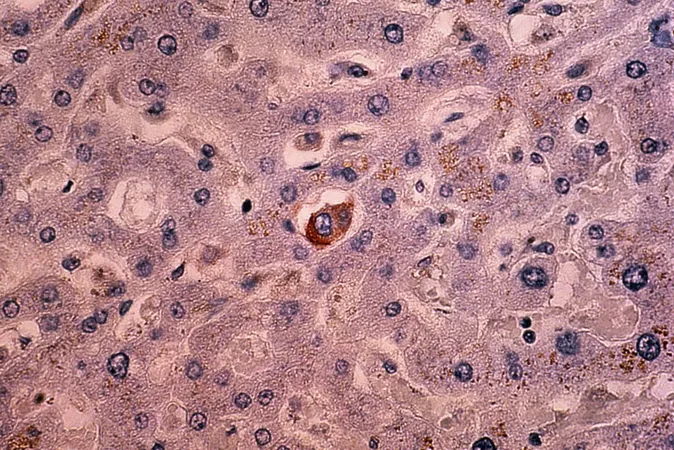
Startling Study Reveals Young Adults with Frailty Are at Greater Risk of Death!
2025-08-26
Author: Jia
A Shocking New Study Uncovers Hidden Dangers for Younger Adults
A groundbreaking study from the University of Dundee has revealed that younger adults experiencing frailty are alarmingly at a higher risk of death and emergency hospital admissions. Published in *The Lancet Healthy Longevity*, this research, spearheaded by Dr. Daniel Morales of the School of Medicine, takes a closer look at the electronic frailty index (eFI)—a tool traditionally utilized for older individuals—to assess vulnerability among younger populations.
Understanding Frailty: It’s Not Just for the Elderly!
Frailty is often thought to be an ailment tethered to old age, but medically, it indicates the body's diminished capacity to handle stress or illness due to a buildup of health issues. This leads to an increased likelihood of sudden health declines, unplanned hospital stays, and even early death—an alarming reality for many younger patients.
The eFI: A Lifesaving Tool for All Ages?
The eFI scores individuals on a spectrum from 'fit' to 'severely frail,' assessing their health landscape based on chronic conditions and disabilities. The Dundee study is particularly significant because it indicates that frail younger adults share similar risk levels to older adults classified as frail, a revelation that challenges long-held beliefs about the age-related nature of frailty.
Implications for Healthcare and Early Intervention
Dr. Morales emphasizes that this groundbreaking finding suggests frailty affects adults across all ages. “Our research indicates that younger adults with frailty may face especially high risks of adverse outcomes,” he stated. He advocates for clinicians to utilize the eFI to identify at-risk younger individuals sooner, enabling early interventions like medication adjustments, rehabilitation, or targeted support to potentially avert unnecessary hospitalizations and fatalities.
The Need for Research: Uncovering the Drivers of Frailty
Despite frailty being less common in the younger demographic, those identified as frail face profound risks. The study analyzed health records from nearly 1 million people across England, marking a pivotal move in recognizing frailty within a younger cohort—an area previously overlooked in research.
A Shift in Perspective: The Future of Frailty Care
There are currently no validated frailty assessment tools specifically for younger adults, highlighting the critical need for this research. If the eFI can reliably signal risk factors among younger populations, it could revolutionize care by shifting the focus from late-life treatment to a comprehensive life-course approach, ultimately improving health outcomes and lightening the load on healthcare systems.
Closing Thoughts: A Call to Action for Health Professionals
With the potential for early identification and intervention, the future of frailty care looks promising. This study not only sheds light on an urgent health issue facing younger adults but also calls for further research to better understand and support this vulnerable group.




 Brasil (PT)
Brasil (PT)
 Canada (EN)
Canada (EN)
 Chile (ES)
Chile (ES)
 Česko (CS)
Česko (CS)
 대한민국 (KO)
대한민국 (KO)
 España (ES)
España (ES)
 France (FR)
France (FR)
 Hong Kong (EN)
Hong Kong (EN)
 Italia (IT)
Italia (IT)
 日本 (JA)
日本 (JA)
 Magyarország (HU)
Magyarország (HU)
 Norge (NO)
Norge (NO)
 Polska (PL)
Polska (PL)
 Schweiz (DE)
Schweiz (DE)
 Singapore (EN)
Singapore (EN)
 Sverige (SV)
Sverige (SV)
 Suomi (FI)
Suomi (FI)
 Türkiye (TR)
Türkiye (TR)
 الإمارات العربية المتحدة (AR)
الإمارات العربية المتحدة (AR)